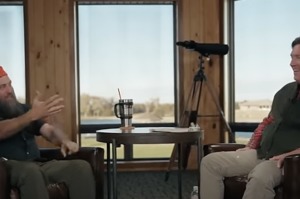Political Reflections
The 2010 mid-term elections have ended! I don't know if I could stand one more political ad. While rancor, contentiousness, and bitterness are, and always have been, a part of the political process, all our collective attention does little to nullify the increasing incivility that has become all too common in our society.
Personally, I am delighted to see that the alarming shift toward European-style socialism has suffered some measure of arrest. Americans, in large majority, appear committed to the constitutional idea of limited government (at least for the moment). It is interesting to note the minimal role that social and cultural issues played in this political season as opposed to the overarching concern for fiscal policies. This represents, in some sense, much more realistic expectations from government.
Politicians on both sides may spin the results in ways that bolster their party's interests but it seems clear to me that it was liberal fiscal policies coupled with the prospect of intrusive government that generated such a strong and decisive response. Apparently, many of us don't want the government encroaching in our lives in such a way that it hinders individual creativity and freedom to pursue our hopes, dreams, and ambitions. This, I believe, more closely agrees with the biblical conceptions of government.
However, the results also reveal the very limited and temporal nature of politics. It was, after all, only two years ago that the nation went in the opposite direction. The Bush administration was a reaction to the Clinton administration. In 2006, Americans hired the Democrats in response to Republican policies. Before that, Republicans were given the Congress in 1994 in reply to the Democratic Party's agenda. There was the "Reagan Revolution," which was a referendum on the Carter administration and through it all we have seen the slow and steady demise of our moral and spiritual values. In other words, the culture has remained unabated in its downward trajectory, despite the continuously shifting balance of political power. This should raise serious questions regarding the role of politics in actually shaping our cultural and moral values.
Approaching the 2008 elections, I raised the question, "Have we become unfit for democracy?" I cited James Madison, who argued "a people who mean to be their own governors must arm themselves with the power knowledge gives." The last several election cycles especially, seem to indicate an electorate who are far more fickle and subject to the prevailing winds than they are driven by any coherent knowledge of government and its proper role. Recent elections reveal more reaction to the current situation and dedication to personal interests than to any higher "knowledge" of constitutional government. Perhaps the most common sentiment of today's electorate is frustration-frustration over the government's inability to satisfy their expectations in the practical areas of job creation and economic growth, much less the preservation of the nation's character and historic cultural values. I submit that as long as we hold such unrealistic expectations from government and politics, we will be forever frustrated.
With the increased expectations of government as producer of economic, social, and cultural progress, there will always follow frustration. Ironically, despite our unmet expectations, the inclination to abandon self-reliance grows and dependence upon government increases. As the entitlement culture expands, our democratic republic will diminish. As one unnamed political observer noted, "A democracy … can only exist until the majority discovers it can vote itself largess out of the public treasury." Simply take a whiff of the putrid Parisian air to see where that is leading! Once entitlements are given, there is no taking them back. Special (aka selfish) interest groups (in the case of the French: sanitation workers unions) will commit economic genocide before giving up one iota of their entitlements. How long before already bankrupt California-the seventh largest economy in the world-suffers the same fate?
However, John Adams went beyond the need for essential political knowledge (which is certainly lacking) and argued for the necessity of particular moral knowledge when he wrote, "We have no government armed with power capable of contending with human passions unbridled by morality and religion. … Our constitution was made only for a moral and religious people. It is wholly inadequate to the government of any other "(emphasis mine). In other words, it is moral knowledge informed by religion that best serves to restrain destructive human passions and enlighten the electorate, thus rendering them better equipped to govern themselves. On this point, the future remains dismal unless there is some serious change in the spiritual life of this nation.
This should serve both as a lesson and wake-up call for the church, signaling a real opportunity to reexamine our role in society and mission to the world. Must we be reminded that the church-the living body of Christ on earth-is the only institution capable of achieving real and positive cultural change? Throughout history, it has been the church that gave impetus to the moral course of society for good. It was the Christian ethos that imposed restraint upon our selfish passions, giving birth to our most noble aspirations and endeavors. The best government will be a reflection of this, not its cause.
In conclusion, the church needs to be about the business of being the church. The evangelical church in America includes millions of people and wields financial resources in the billions and yet we have become irrelevant. We have countless evangelistic programs and events rivaling anything from Madison Avenue and Hollywood but we are less interested in actually demonstrating the love and life of the gospel in ways that matter. I think there's a parallel between the increased expectations of government and the church. Similarly, the body of Christ is increasingly reliant upon the institutional church rather than assuming personal responsibility for actually being the living body of Christ.
We criticize churches for their emphasis on programs and consumer-oriented marketing strategies but it's what we want. We personally don't want to do the hard work of missions-loving the lost, proclaiming the gospel, serving the poor and each other. Instead, we want to give our money and let the institutional church with its professional staff do the work. This nonsense doesn't emerge out of a vacuum. The message for church leadership has been this: make it simple and convenient and we'll support you! Church leaders should reject this impulse and call their people to the hard task of being the body.
It is the power of the church and not government that needs to be unleashed in America and this can begin with the simple and personal proclamation, "Here I am Lord, send me!" John Wesley captured the essence of the church's power well when he wrote, "If I had 300 men who feared nobody but God and hated nothing but sin and were determined to have nothing known among men but Christ and him crucified, I could set the world on fire."
So let us rejoice that fiscal sanity may return to the nation but let us not allow our expectations to spin beyond their real capacity. Let us look instead to Christ and his kingdom. This is the hope of the world, both in this life and the life to come. Let's get back to setting the world on fire!



























